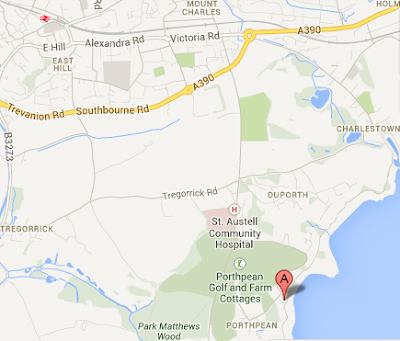 |
| http://arthistory.about.com/od/from_exhibitions/ig/arcimboldo_paris/gaml1007_15.htm |
If you haven't read Carl Hiaasen (and he's not yet well-known here in the UK) I hope you will. Much of the best and most original postwar writing in English has come from the US - I defy anyone to name a British writer to stand next to Thomas Pynchon, for example. Maybe it's that America is less hung up on its cultural heritage (having so many), maybe it's simply the literary efflorescence that accompanies economic and military expansion as it did in Elizabethan England, I don't know.
But things that grow also decay, and Hiaasen's very funny crime novels are a symbolic organic revenge for property developers' depredations in his beloved Floridian wetlands. He's attacked the Disney Corporation in Team Rodent (1998).
His viscerally-felt objections are partly ecological, partly moral, but also aesthetic. The developers are merely crass, gripped by a nearsighted obsession with money, and as long as they turn over the cash and get out that's all they care about. The retirees who flock South are similarly dumb and disconnected from their environment; for them, a condo close to the Everglades is like one in New York, just warmer in winter. A long-brewed reckoning awaits them all.
In the book I've just (re)read, Double Whammy, the arch-enemy is a ratbag TV preacher who has sunk his profits in a disastrous residential complex pierced by canals ("lakes", he angrily reminds his salesmen) which he hope will be a selling feature for keen bass catchers, but which for historical land-use reasons turn out to be nearly as toxic as Love Canal.
But Nature is fighting back, not least because it has recruited a former State Governor who has despaired of resisting the forces of capitalism and gone wild, living in the forest and only sallying forth to harvest roadkill for his dinners. In this book, he loses an eye in a fight and replaces it with one from a stuffed owl; in another, his long hair becomes braided Indian-style, with eagle claws hanging from the ends.
Even the lesser villains are mutating in the vicinity of nonhuman life, with which (as we now know) we share so many genes. Here, a kidnapper kills a pitbull and unable to remove its death-locked jaws from his arm, simply cuts off the head and carries on. When he and his victim pass through a traffic tollbooth, the changetaker calmly expresses her regret that she hasn't any Milk Bones to offer the creature; for in Florida, anything can happen and Man is beginning to forget his distinctive nature.
Hiaasen has a writer's fascination with language, which like the nearby primeval landscape burgeons beyond our ability to grasp it all. In the midst of his scorn for the daftness of fishing competitions, he gives us this rococo recital of its commercial artefacts:
"As was everything in Dennis Gault's tournament artillery, his bass lures were brand new. For top-water action he had stocked up on Bang-O-Lures, Shad Raps, Slo Dancers, Hula Poppers, and Zara Spooks; for deep dredging he had armed himself with Wee Warts and Whopper Stoppers and the redoubtable Lazy Ike. For brushpiles he had unsheathed the Jig-N-Pig and Double Whammy, the Bayou Boogle and Eerie Dearie, plus a rainbow trove of Mister Twisters. As for that most reliable of bass rigs, the artificial worm, Dennis Gault had amassed three gooey pounds. He had caught fish on every color, so he packed them all: the black-grape crawdad, the smoke-sparkle lizard, the flip-tail purple daddy, the motor-oil moccasin, the blueberry gollywhomper, everything."
Wonderful. And best of all, good triumphs over evil.
It's escapism, naturally. As Oscar Wilde said, "It was the imagination that set remorse to dog the feet of sin. It was the imagination that made each crime bear its misshapen brood. In the common world of fact the wicked were not punished, nor the good rewarded. Success was given to the strong, failure thrust upon the weak. That was all."
But in stimulating our imagination, perhaps Hiaasen's gonzo tales and misshapen brood are preparing us to take the side of the angels, or at least that of the more enigmatic Green Man.
 |
| http://www.vosper4coins.co.uk/stone/GreenMan_files/GreenMan.htm |
All original material is copyright of its author. Fair use permitted. Contact via comment. Nothing here should be taken as personal advice, financial or otherwise. No liability is accepted for third-party content, whether incorporated in or linked to this blog; or for unintentional error and inaccuracy.












